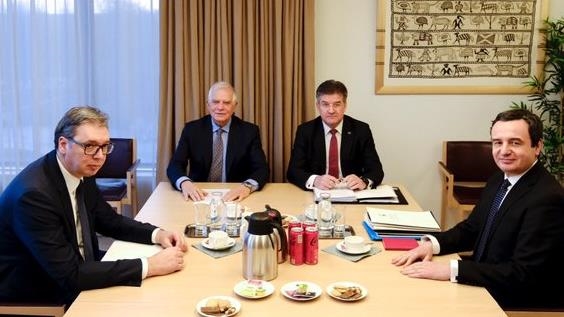The European Union has asked Kosovo to hold off on a move requiring ethnic-Serb majority areas to adopt the same currency as the rest of the country, as new rules come into effect that prevent use of the Serbian dinar.
Although not an EU member, much of Kosovo uses the Euro. In northern areas largely populated by ethnic Serbs, however, the dinar remains in use, with many dependent on financial support from the Serbian government. This often comes in cash form as dinars.
The new rules implemented today by the Kosovo government mean that banks and other financial institutions can no longer use other currencies in local transactions. The move follows on a decision issued by the country’s Central Bank last summer.
Amidst concerns that the decision could add to tensions between Kosovo and Serbia, the EU issued a statement cautioning that the move could affect “the daily lives of Kosovo Serbs” and other communities in Kosovo, especially via its impact on schools and hospitals. It noted that there had been no prior consultation and that no alternatives had been offered.
Kosovo has assured Brussels that the new rules would not have “a negative impact or penalize the citizens,” according to Deputy Prime Minister Besnik Bislimi.
On Wednesday, Kosovo’s Central Bank reported that the Serbian bank Komercijalna Banka AD Beograd closed its branches in Kosovo. The government in Belgrade refuses to recognize Kosovo as a separate country.
Brussels wants Kosovo to extend the currency transition period and has urged it “to find a negotiated solution to this issue in the framework of the EU-facilitated Dialogue.”
The EU and the US, meanwhile, continue to press the two countries to implement agreements that Serbia’s President Aleksandar Vučić and Kosovo’s Prime Minister Albin Kurti arrived at in the spring of last year.
Serbia’s and Kosovo’s refusal to compromise on multiple issues stands in the way of realising their membership aspirations, EU foreign policy chief Josep Borrell has cautioned.
EU-backed normalization talks continue to encounter difficulties. Yet earlier this week the EU envoy for the Western Balkans, Miroslav Lajcak acknowledged that the two sides had acted on payment arrangements for the energy consumed in Kosovo’s north and noted their decision to recognize each country’s vehicle license plates.

